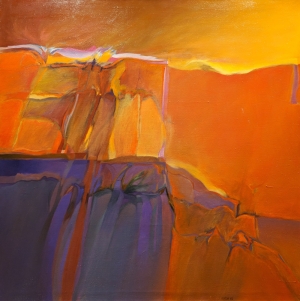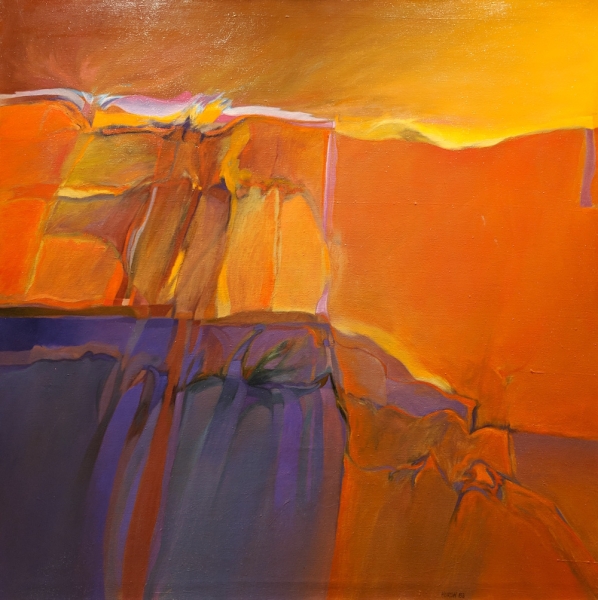Black Mountain College was structured differently than most educational institutions at the time. In 1933 it was founded out of a desire for a more progressive education through the use of art, hands on learning, close student-faculty interaction and critical thought. As an early example of a liberal arts college, this model has since spread throughout the U.S. and is used at Appalachian State University today.
A liberal arts education emphasizes a well-rounded course of study in the humanities and natural, mathematical and social sciences that aims to impart a broad general knowledge and develop intellectual capacities adaptable for numerous work and life environments in contrast to a narrowly focused professional, vocational or technical skill.
Embedded in liberal education is the ability to think critically, write well, communicate well, separate fact from fiction, understand diverse perspectives and arrive at solutions to complex problems with curiosity. These are the skills that employers consistently value most and seek for leaders in their fields whether it be the humanities, sciences, etc.
At Black Mountain College, they taught students in an interdisciplinary way to solve problems, to explore and learn. Their curriculum involved interactive learning, which is one of the things we do well at Appalachian. We have eight Fellows who are incorporating new pedagogy in the classroom this semester at Appalachian and 12 speakers visiting the area to talk about the exploration and impact that Black Mountain College’s perspective on education and art has, and continues to have on all of us. Below is a list and brief explanation of each event this semester happening at collaborating locations across the area.
ArtTALKS with Basil King
Thursday, Mar. 1, 2018 at 6 p.m. at the Turchin Center for the Visual Arts, Lecture Hall (TVCA).
Basil King is a poet and a prolific visual artist who was a student at Black Mountain College. He often explains his art by saying: “from the abstract to the figure, from the figure to the abstract makes an edge of exquisite distance and distance gives us our sensations.”
Today he goes back and forth between painting and writing, on two different floors of his house in Brooklyn, which he shares with his wife Martha King, also a fellow BMC student.
Spring Exhibition Celebration
Friday, Mar. 2, 2018 at 6 -10 p.m. at the Turchin Center for the Visual Arts (TVCA).
There will be four exhibitions opening at the Turchin Center: “Creative Democracy: The Legacy of Black Mountain College,” “High Country Herbarium: Preserving Plants & Plant Communities in the Southern Appalachians,” “Department of Art Faculty Biennial,” “The 15th Annual Appalachian Mountain Photography Competition & Exhibition” and “Pieces of the Puzzle: Turchin Outreach Programs.” For more information, visit https://tcva.appstate.edu/calendar/events/2146.
Black Mountain College Lecture - David Silver
Thursday, Mar. 15, 2018 at 7 p.m. at Belk Library and Information Commons, Room 114
David Silver is an associate professor of environmental studies and urban agriculture at the University of San Francisco, where he teaches classes on food, culture and storytelling. For the last five years, he has been researching and writing a multimedia history of the farm at Black Mountain College. During the summers of 2014 and 2015, Silver was scholar-in-residence at Hunt Library at North Carolina State University, where he worked with NCSU’s library and IT staff to design multiple video walls to accompany his talks about the farm at Black Mountain College.
Anne Waldman
Sponsored by the Hughlene Bostian Frank Visiting Writers Series in Partnership with the Black Mountain College Semester
Thursday, Mar. 22, 2018 at 7:30 p.m. at the Table Rock Room, Plemmons Student Union, Appalachian State University.
Anne Waldman, internationally recognized and acclaimed poet, is recognized in the lineage of Whitman and Ginsberg, and in the Beat, New York School and Black Mountain trajectories of the New American Poetry. She is the author of more than 40 books. She will give a reading of her work and talk about the broad influence of BMC on poetics, as well as her relationship with legendary BMC poet and the College’s last rector, Charles Olson. As part of the Hughlene Bostian Frank Visiting Writers Series, a Craft Talk “The Creative Rhizome: Generative Practices in Art & Life” will take place at 3:30 p.m. in the Table Rock Room, Plemmons Student Union at Appalachian preceding her evening lecture at the same location at 7:30 p.m.
ArtTALKS: Julie Thomson
Wednesday, Mar. 28, 2018 at 6 p.m. at the Turchin Center for the Visual Arts (TVCA).
Julie Thomson is an independent scholar and curator who lives in Durham, North Carolina. She has been researching and writing about the Black Mountain College artist, Ray Johnson since 2006 and photographers who were at Black Mountain College since 2015. In 2017 she curated the exhibition, “Begin to See: The Photographers of Black Mountain College” at the Black Mountain College Museum + Arts Center. Her writing has appeared in Black Mountain College Studies and Raw Vision. She has an M.A. in Art History from the University of Massachusetts Amherst and was a Critical Studies Fellow in the Core Program, Museum of Fine Arts Houston in 2010-2011.
For additional information about the entire semester's events, visit: cas.appstate.edu/black-mountain-college. For exhibition information visit: tcva.org/exhibitions or blowingrockmuseum.org. And for a detailed timeline about Black Mountain College, visit: appalachiaonline.appstate.edu/black-mountain-college-semester
Venue Locations for Black Mountain College events:
BRAHM: Blowing Rock Art & History Museum, 159 Chestnut St., Blowing Rock, N.C.
TCVA: Turchin Center for the Visual Arts, Lecture Hall, 423 West King Street, Boone, N.C.
Belk Library: Belk Library and Information Commons, Room 114, Appalachian State University, Boone, N.C.
About the Turchin Center for the Visual Arts exhibition: January 12 – June 2, 2018
“Creative Democracy: The Legacy of Black Mountain College” features the artwork of many of the artists who attended and taught at Black Mountain College during its colorful 24-year history. Some of those artists are still working. The exhibition looks at the legacy of the Black Mountain College artists, what the Black Mountain experience meant to them, their influences on one another and their continuing place in the art world. The exhibit showcases paintings, furniture, sculpture, clay, collages, glass, textiles, books and poetry.
About the Blowing Art and History Museum (BRAHM) exhibition: November 24, 2017 - April 7, 2018
“Arts at the Center: A History of Black Mountain College” explores several components of the rich history of BMC and its relationship to North Carolina. John Andrew Rice, Jr. founded the College with the idea that the arts should be at the center of a liberal arts education. Some of the worlds greatest modern artists, writers, performers, musicians and even scientists served as students and faculty at Black Mountain College, including Josef & Anni Albers, Charles Olsen, Merce Cunningham, Robert Rauschenberg, Willem & Elaine de Kooning, Buckminster Fuller, M.C. Richards and many others. "Arts at the Center" shares an overview of the history and concepts behind Black Mountain College alongside historic photographs and artwork created by some of its most recognized students and faculty.
About the Hughlene Bostian Frank Visiting Writers Series
The Hughlene Bostian Frank Visiting Writers Series, named in honor of alumna Hughlene Bostian Frank ’68, brings distinguished and up-and-coming creative writers to the Appalachian State University campus throughout the year to present lectures and discuss their works. Frank is a 2013 Appalachian Alumni Association Outstanding Service award recipient, past member of Appalachian’s Board of Trustees, current board member of the Appalachian State University Foundation Inc., and generous supporter of Appalachian. Learn more at http://visitingwriters.appstate.edu.
The Fall 2017 Hughlene Bostian Frank Visiting Writers Series is supported by the Appalachian State University Foundation Inc., Appalachian’s Office of Academic Affairs, College of Arts and Sciences, Department of English, Office of Multicultural Student Development, University Bookstore, Belk Library and Information Commons, and the Appalachian Journal. Business sponsors are The Gideon Ridge Inn, The Red Onion Restaurant and The New Public House & Hotel. Community sponsors include John and the late Margie Idol, Paul and Judy Tobin, Alice Naylor and Thomas McLaughlin.
About the College of Arts and Sciences
The College of Arts and Sciences is home to 16 academic departments, two stand-alone academic programs, two centers and one residential college. These units span the humanities and the social, mathematical and natural sciences. The College of Arts and Sciences aims to develop a distinctive identity built upon our university's strengths, traditions and unique location. Our values lie not only in service to the university and local community, but through inspiring, training, educating and sustaining the development of our students as global citizens. There are approximately 5,850 student majors in the college. As the college is also largely responsible for implementing Appalachian's general education curriculum, it is heavily involved in the education of all students at the university, including those pursuing majors in other colleges. Learn more at http://cas.appstate.edu.
About Appalachian State University
Appalachian State University, in North Carolina’s Blue Ridge Mountains, prepares students to lead purposeful lives as global citizens who understand and engage their responsibilities in creating a sustainable future for all. The transformational Appalachian experience promotes a spirit of inclusion that brings people together in inspiring ways to acquire and create knowledge, to grow holistically, to act with passion and determination, and embrace diversity and difference. As one of 17 campuses in the University of North Carolina system, Appalachian enrolls about 19,000 students, has a low student-to-faculty ratio and offers more than 150 undergraduate and graduate majors.
###
Feb. 22, 2018
By Ellen Gwin Burnette
BOONE, N.C.

